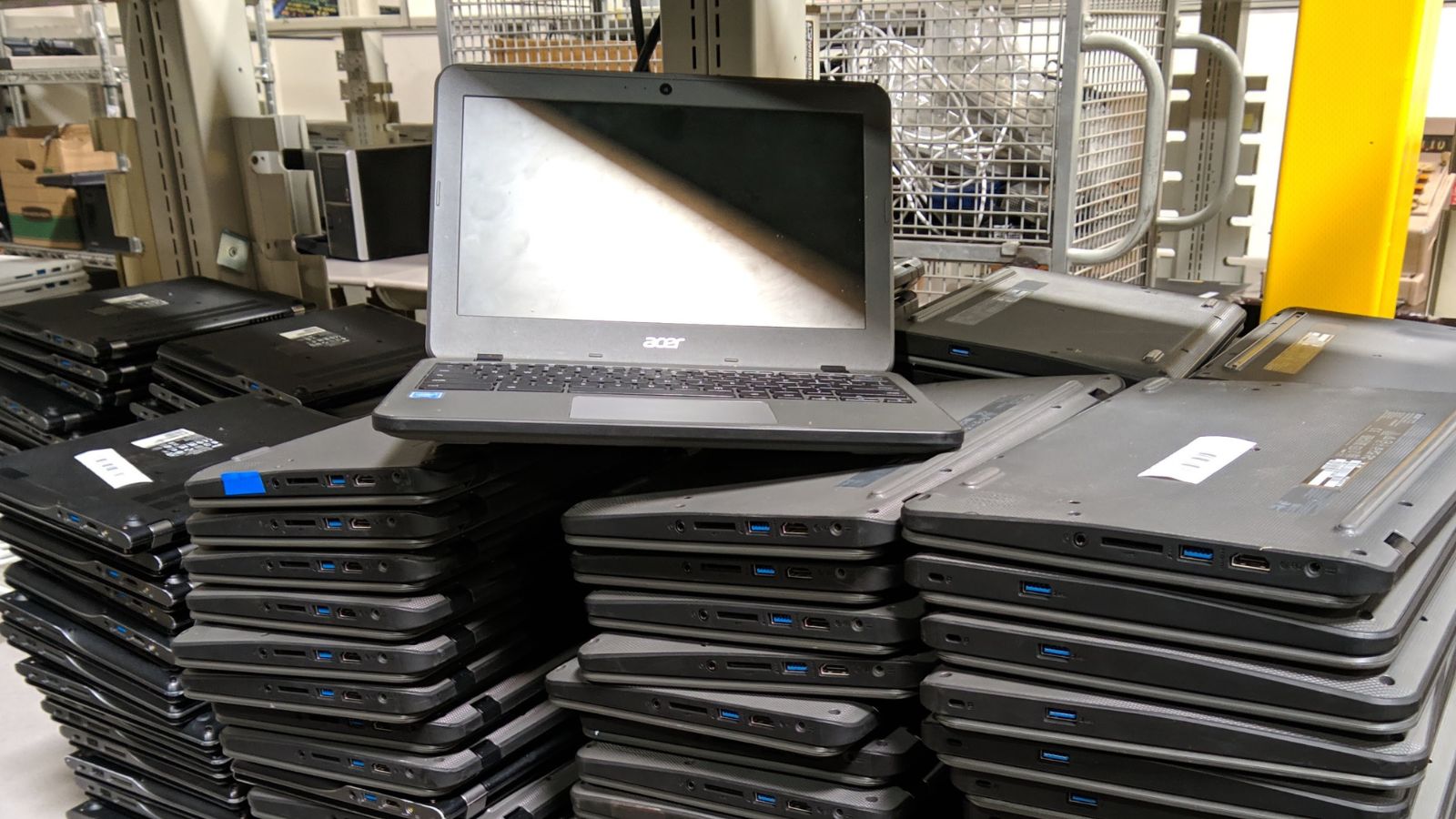Testimony: Consumer Protection – Right to Repair – Farm Equipment
Today, we testified on legislation introduced by Del. Hornberger to establish the right to repair for farm equpiment in Maryland.
Rishi Shah, Maryland PIRG Advocate
Testimony for HB0562
Economic Matters Committee
Wednesday, February 23rd, 2022
Consumer Protection – Right to Repair – Farm Equipment
POSITION: FAVORABLE
Maryland PIRG is a state based, non-partisan, citizen funded public interest advocacy organization with grassroots members across the state and a student funded, student directed chapter at the University of Maryland College Park. For fifty years we’ve stood up to powerful interests whenever they threaten our health and safety, our financial security, or our right to fully participate in our democratic society.
We support HB562, ensuring Maryland farmers are able to have reasonable access to tools and information to repair their farm equipment. Maryland farmers invest a lot in their equipment, but companies use their power in the marketplace to make it harder or more expensive to repair, or even designed to fail.
Farmers can’t fix their equipment anymore.
Maryland farmers deserve protections from price gouging and rip-offs. Generations of farmers have found a way to fix their broken tractors and combine harvesters to get the job done. But now, many equipment manufacturers are refusing to give farmers all of the tools that they need to fix their stuff—especially the software tools to install replacement electronics—leading to delays of hours to weeks while the farmer waits for the dealership to make the repair. As a result, a recent study found that 77% of farmers have bought older-model equipment to avoid the software embedded in new models.
Farm equipment, like many things these days, are increasingly tech dependent, and powered by computers. In order to repair it, you need some basic things: spare parts, repair documentation (like the schematics and manuals), diagnostic software and any special tools. But when the companies that make farm equipment block access to all of those essential things, repair becomes difficult — and in many cases only the manufacturer or their “authorized” repair technicians can do the repairs.
Manufacturers essentially have a monopoly on repairs. When only the manufacturer or their ‘authorized technician’ can fix something, they can charge whatever they want or they can say “it can’t be fixed” and push you into buying a new product or component. They do both. By refusing to provide farmers with software keys required to diagnose and authorize repairs, manufacturers have taken control of the repair process.
A Maryland PIRG Foundation report found that software repair locks prevent farmers from fixing their own tractors, forcing them to turn to the dealer for many repairs. Since not every Maryland town has a John Deere dealership, these software locks can cause service delays of hours to days to weeks, which can threaten a farmer’s crops and therefore their livelihoods.
It might seem like the information farmers are asking for is complicated, and the industry will claim it is, but even where electronic equipment is complex, repair is not. Manufacturers have built their repair tools, parts, and diagnostics to be used by minimally trained technicians in order to control labor costs. These same parts, tools, and diagnostics can be used with equal outcomes by any trained technician or farmer. There are stories of some farmers who have turned to hacking to get access to these tools or gotten pirated diagnostic tools.
This bill will upset manufacturers and their current monopoly on repairs. That’s the point. Manufacturers that currently prevent competition for repair services will be forced to compete. This is the healthy outcome that spurs innovation, quality of service, and competitive pricing.
Right to Repair works and is popular.
Right to Repair requires manufacturers to make the diagnostic tools, manuals, and replacement parts available to the user or a third party available at a fair price. These are the critical things that farmers need to fix broken equipment. 95% of farmers support Right to Repair, and 92% of farmers believe access to these tools, manuals and parts would save them money on repair.
While this is not the first time the General Assembly has debated the issue, a lot has changed in the last year. In May 2021, the Federal Trade Commission (FTC) released a report entitled Nixing the Fix: An FTC Report to Congress on Repair Restrictions. This report made it clear that the FTC is ready to take a bold stance on repair:
“It is clear that repair restrictions have … steered consumers into manufacturers’ repair networks or to replace products before the end of their useful lives. Based on a review of comments submitted and materials presented…, there is scant evidence to support manufacturers’ justifications for repair restrictions.”
Soon after the report release, President Biden issued an executive order directing the FTC to draft new regulations around the ability of manufacturers to restrict independent repair of their products.
The statute being proposed is adapted from the “Right To Repair” agreement for cars–so we know the structure of the law works. The automotive industry agreed to these terms after Massachusetts passed a law similar to HB 562. There have been no ill effects from the application of this law, and consumers have the option of taking their car to whichever mechanic they choose. If it works for cars, it should easily work for farm equipment. We respectfully request a favorable report.
Below are some clarifying points on common concerns with this bill. We are happy to answer any additional questions from the committee.
We respectfully request a favorable report.
Will this let farmers skirt EPA emissions rules?
No. John Deere continues to make claims that this legislation will enable farmers to skirt EPA emissions rules, and even that Deere would be liable if farmers did. Two things make this argument bad faith: first, it’s illegal to skirt emissions requirements and would remain so, and second, it doesn’t make it easier.
After this issue came up in a Nebraska hearing on Right to Repair, Willie Cade, a member of the Nebraska Farm Bureau, requested the EPA to clarify their view, contacting Francisco J. Acevedo, the Mobile Source Program Manager for U.S. EPA – Region 5. He responded to Cade’s concerns in an email string, found here.
In the email, the EPA staffer explained that “the Clean Air Act gives EPA the authority to set emissions standards and all that goes along with that, but it does not give EPA the authority to regulate the usage or operation of such engines by the end user. Because of that, manufacturers are not responsible for the end user tampering with their engines/equipment.”
And while breaking the law and skirting EPA emissions standards is technically possible, right to repair legislation does not make it any easier, whatsoever. To skirt EPA emissions rules, a farmer would have to first erase the operating system present on the machine and then upload new, modified software that either does not have emissions and safety controls or allows a farmer to ignore them. This is an illegal practice separate from the software tools called for by farmers advocating for the Right to Repair.
All we are asking for is the tools the dealerships use to fix equipment–unless there is a tool in there to dodge emissions standards, this argument doesn’t make sense.
Will this give everyone access to the source code of their farm equipment?
No. This gives access to diagnostic tools and embedded software, NOT source code. All we are asking for is the tools the dealerships and authorized technicians use to fix equipment.
Source code is instructions written in a human-legible programming language that tell a machine what to do. Anyone who can read the source code could modify it and use it in a competing form, justifying concern from manufacturers.
But before source code is turned into the software tools that dealers use to fix farm equipment, it is compiled into a series of computer-legible 1’s and 0’s known as embedded code. In a combine, a farmer interacts with this embedded code through the controls in the cabin, which execute the embedded code to display a selectable button or list of settings on their screen.
Translating these 1’s and 0’s back into source code is practically impossible, which is why Apple, HP and others make embedded code freely available for their products in the form of firmware updates.
Because Right to Repair legislation only mandates access to the embedded code required for diagnosis, maintenance or repair, and not the uncompiled source code behind it, there is no additional risk of source code leaking.
What will this mean for dealerships?
Dealerships sell equipment in a competitive market and while they make money, they also benefit extensively from monopoly pricing on repairs. Crain’s Chicago Business magazine reported that repair yields “profit margins up to five times better than new-equipment sales.”
The auto repair industry’s experience with Right to Repair for automobiles proves the fear that competition in repair will cause dealership closures is unwarranted. The presence of competition for repair has made dealerships more attentive to their customers, and remain dominant in all late-model repair services.
Topics
Authors
Rishi Shah
Find Out More

‘Failing the Fix’ scorecard grades Apple, Samsung, Google, others on how fixable their devices are

Fixed for the Holidays

Green schools guide

